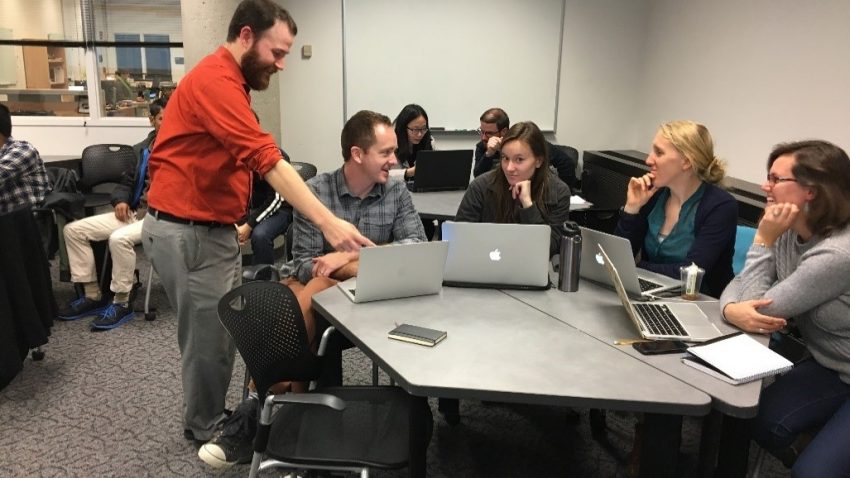
UC Libraries is collaborating with the College of Allied Health Sciences Open Science Community of Practice to host the seven-module Center for Open Science trainings from January 22 to June 4, 2025. All are welcome to join and encouraged to share with contacts that might be interested to attend.
Open Scholarship, which includes concepts such as Open Science, Open Research, Open Data, and Open Access, is a research approach that strives to make the research process as transparent and reproducible as possible. These trainings cover topics such as reproducible methods, data management and sharing, research collaborations and specific techniques such as preregistration, registered reports, preprints and teaching open scholarship.
We invite colleagues to register for the workshops facilitated by the Center for Open Science trainers as well as working sessions for a hands-on experience facilitated by UC Libraries focused on topics discussed in the trainings. The sessions will be both in-person and hybrid with light refreshments for the in-person sessions. Per the request of the COS facilitators, the sessions will be capped at 40 participants maximum. Given the cap, please ensure you can attend the sessions when registering. The faculty one stop instance will direct you to a MS form for registration.
Registration Link – https://ce.uc.edu/FacDev/Workshops/Details/19940. The sessions will be held both in-person in the Visualization Lab 240H Braunstein in the Geology-Math-Physics Library and virtually.
The curriculum and dates for the trainings are:
COS Module 1: Introduction to Open Scholarship – Jan 22
COS Module 2: Management and Sharing – Jan 29
UC working session – Feb 5
COS Module 3: Reproducible Methods – Feb 26
UC working session – March 5
COS Module 4: Research Collaboration on the Open Science Framework (OSF) – March 26
UC working session – April 9
COS Module 5: Research Sharing – April 23
UC working session – May 7
COS Module 6: Preregistration and Registered Reports – May 14
UC working session – May 28
COS Module 7: Teaching about Open Scholarship – June 4
Please contact AskData@UC.Edu if you have any questions about the trainings or the Center for Open Science.

